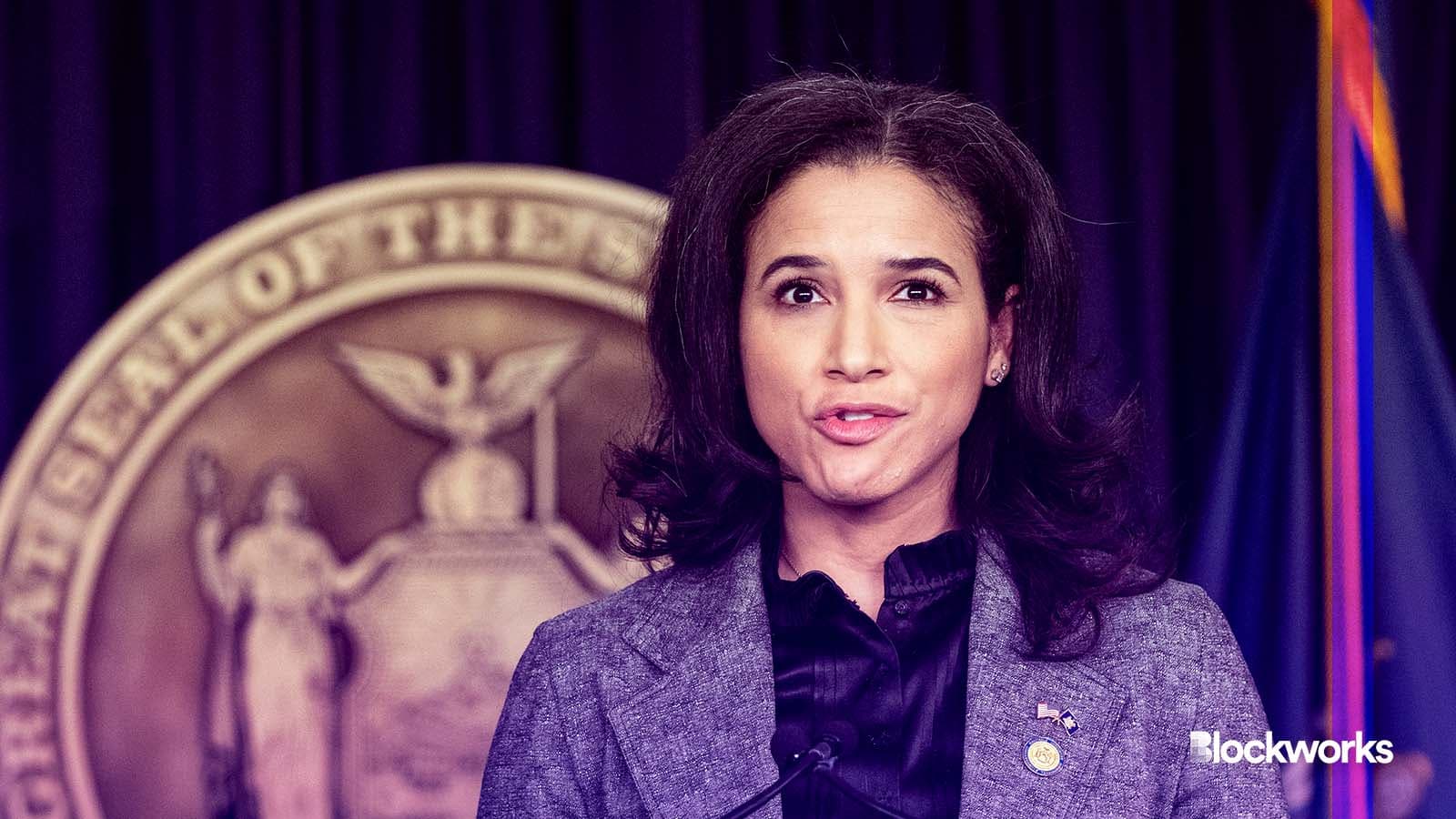Planning to list (or delist) a token? NYDFS has some new guidelines for you
The NYDFS, following a September comment period, has rolled out new crypto guidance

NYDFS Superintendent Adrienne Harris | lev radin/Shutterstock modified by Blockworks
The New York State Department of Financial Services issued new listing guidance on cryptocurrencies Wednesday.
The guidance comes after a feedback period that began back in September.
According to feedback the NYDFS received, guidance ensures higher risk assessment standards for coin listing policies while also enhancing previous requirements for consumer-facing firms.
As first mentioned in September, the NYDFS requires companies to put forth a coin delisting policy that is “compliant with this guidance to ensure that, in the event a coin must be delisted, it can be done in an orderly way that protects consumers and minimizes market disruption.”
The DFS received extensive feedback that retail consumers needed more protections — including that cryptocurrencies which “exhibit certain characteristics impermissible for self-certification for any virtual currency business activity available to retail consumers.”
Tailored risk assessments were mentioned by those surveyed so that crypto firms could have specific assessments relevant to their businesses due to the already strict assessment standards enforced by the DFS.
Specifically in regards to coin delisting policies, some of the commentators raised concerns about giving advance notifications around delistings, which they claim may not always be possible.
To combat those concerns, the updated guidance, “provides limited exceptions to advance notification requirements based on exigent circumstances.”
Those who weighed in also asked for clearer definitions, with which the DFS says it complied.
With the updated guidance, crypto companies will put forth both a coin listing and delisting policy to receive approval from the department.
In September, when the coin delisting policy was first announced, the DFS said that the policy “must include robust procedures that comprehensively address all steps involved in removing support for a coin.”
It requires the company to tailor the policy to its “specific business model, operations, customers and counterparties, geographies of operations, and service providers; and to the use, purpose, and specific features of coins being considered.”
“This guidance continues the Department’s commitment to an innovative and data-driven approach to virtual currency oversight, keeping pace with industry developments,” said Superintendent Adrienne Harris.
Get the news in your inbox. Explore Blockworks newsletters:
- The Breakdown: Decoding crypto and the markets. Daily.
- 0xResearch: Alpha in your inbox. Think like an analyst.






